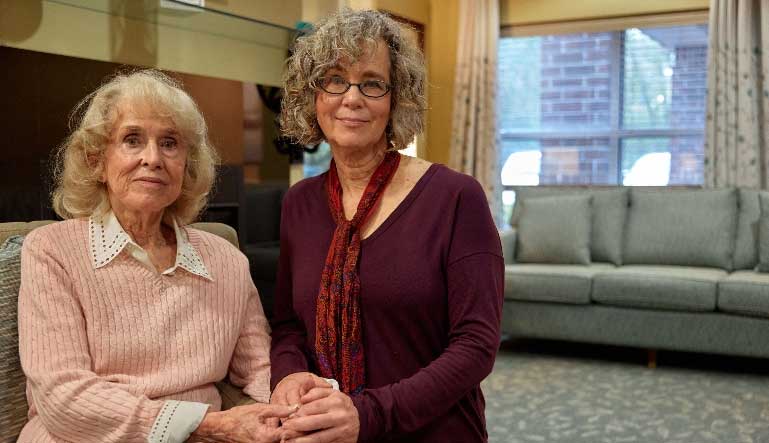You’ve earned your retirement, and you deserve to kick back, relax, and enjoy your golden years without the challenges of working. But getting older can pose challenges of its own. If home upkeep, hygiene, and other activities of daily living have become difficult for you or a loved one, it may be time to consider moving to assisted living, also known as personal care in Pennsylvania and Georgia.
When older adults (or their caregivers) hear the words “assisted living,” the image that comes to mind is often an institutional facility that marks the end of the road—a cold place where seniors are meant to live out the final years of their life. But the truth is that transitioning to assisted living can be the start of a wonderful new chapter of life where the to-do list is tossed out and the focus is on what brings joy.
What is Assisted Living?
Falling between independent living and full-time nursing care, assisted living offers a stress-free lifestyle where extra help with activities of daily living (ADLs) is always near so residents can maintain much of their independence.
Signs It’s Time to Move to Assisted Living
No two situations are exactly alike, and there are a lot of factors to weigh when considering moving to assisted living, whether for yourself or a loved one. Here are five signs that it might be time to start thinking about making the move to assisted living.
You Want to Expand Your Social Circle
As you or your loved one gets older and enjoys retirement, social circles can sometimes feel like they’re shrinking. Your friends may have moved away to be closer to their children or relationships you had during your working life have drifted apart.
Moving to an assisted living community is a great way to enjoy a stress-free lifestyle while meeting new people and making new bonds. The life enrichment and wellness activities offered at assisted living communities give you the opportunity to meet people with similar interests and experiences. Five Star takes a holistic approach to active community living with LifeStyle360—whether it’s in art class, on a cultural excursion, or during happy hour you’re bound to make new friends.
Accidents and Falls are More Frequent
As the leading cause of injury among older adults, falls are often caused by an older home that isn’t designed with senior safety in mind. Car accidents also pose a major risk for serious injury for older adults. Especially if you or a loved one lives alone, making driving a necessity.
It can help to reflect on the past year. A question to ask yourself if you’re thinking of moving to assisted living is: have you made two or more trips to the hospital due to a fall or an accident? If you notice any pattern of injuries, you may benefit from moving to an assisted living community where bedrooms and communal areas are made with safety in mind plus trained staff to assist you.
Home Maintenance Struggles
Aging often causes physical strength to decline. This can make it more difficult for you to keep up with housework and yard maintenance. Mowing the lawn, shoveling snow, and cleaning out the refrigerator can be difficult and even unsafe.
If taking care of your home has become increasingly difficult it might be time to look at an assisted living community. The stressors of home upkeep, housekeeping, and laundry are all handled by welcoming and trained staff letting you focus on your hobbies and pursue stress-free living.
Difficulty Leaving Home
Whether it’s mobility impairment or a lack of transportation, getting out of the house can become difficult as you or a loved one gets older.
If you are having difficulty leaving your home you may benefit from moving to an assisted living community. Most communities offer expert staff who work with your needs. Plus all kinds of life enriching activities, fun programs, and transportation services are included to keep you engaged and comfortable.
Getting the Right Nutrition
One of the best things about assisted living communities is the restaurant-style dining rooms with well-balanced chef-inspired meals, snacks, and catered meal plans. You or a loved one might benefit from an assisted living community if you find yourself skipping meals or relying on unhealthy convenience foods.
Enjoy The Freedom of Stress-Free Assisted Living
Still not sure if it’s time to think about assisted living? Take your time and reach out to a family member, friend, or an assisted living community directly to start the conversation.
Moving to an assisted living community is a major life decision for you or a loved one to make. There’s a misconception that assisted living means giving up your independence or that someone is watching over you 24/7—this couldn’t be farther from the truth.
At Five Star, assisted living is designed to enhance independence. With no more chores or errands to worry about, you have the freedom to do what makes you happy and rest easy knowing your every need is met at a cost you can afford. Most importantly, though, you are welcomed into a new home sweet home where you’re treated like family from the moment you walk in. Find out if there’s a Five Star community near you or contact us to learn more.

